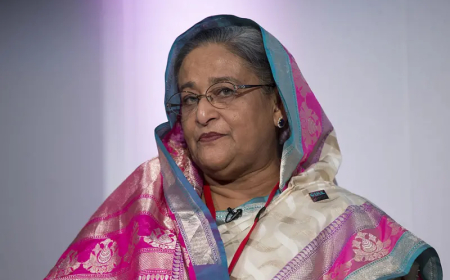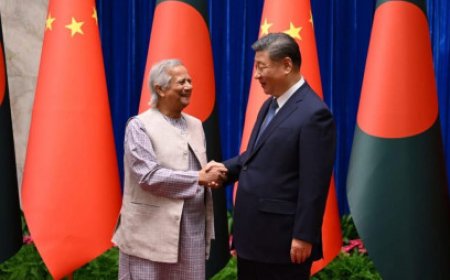Political contagion in Europe: can the European Union survive Trumpism
Trumpism could fatally undermine European integration if governments do not stand firm and defend the EU’s law-based system

Political contagion in Europe: can the European Union survive Trumpism?
Trumpism could fatally undermine European integration if governments do not stand firm and defend the EU’s law-based system
When economists talk about contagion, they usually refer to the propagation of shocks to other countries and regions through economic or financial channels. President Donald Trump’s promised policies threaten shocks that will affect aggregate demand, prices and exchange-rates and create investor uncertainty. But Trump could also bring political contagion that harms the very functioning of the European Union.
Political contagion could arrive via several channels. The first is through Russian-style direct interference in elections. Through his X platform’s algorithms, Trump’s ally Elon Musk is openly seeking to influence European votes, also by his endorsement of German far-right party Alternative für Deutschland and criticism of British Prime Minister Keir Starmer. This social-media use is a qualitatively different level of interference from the first Trump administration, when Steve Bannon tried to promote Trumpism through far-right party convenings, and has much greater potential to create political upheaval.
Second, Trump is changing the norms of international relations by loose talk of US takeover of Greenland or the Panama Canal, or the absorption of Canada. Even if these statements come to nothing, they mark a fundamental change in the US role from anchor of United Nations international norms to disruptor of settled borders. Territorial integrity and the peaceful resolution of international disputes are fundamental principles of the UN Charter and European integration.
Third, Trump is taking up again his drive to weaken global institutions, through moves such as withdrawal from the Paris climate agreement and imposition of tariffs that undermine rules-based trade.
Fourth, Trump is changing the norms of good corporate behaviour. Powerful American corporations such as Meta and Amazon are appointing Trump favourites to their management or boards. Trumpism undermines the law and goes soft on enforcement, resulting in declining compliance and rising uncertainty and corruption. Putative members of the next administration are talking of non-enforcement of business regulation. Even worse for Europeans, US business leaders such as Mark Zuckerberg are contesting the extraterritorial reach of EU law.
These behaviours challenge European democracies founded on the values of checks and balances, separation of politics from business interests and rule of law. But they are an existential threat to the European Union itself.
The EU governance system has been tested greatly over the past 15 years by Viktor Orbán’s government in Hungary. His erosion of the rule of law and undermining of checks on executive power were taken up in Poland and now in Slovakia. Orbán has also applied Trump-like transactionalism in the EU, using his country’s veto to oppose agreements, for example on support for Ukraine. If such behaviour now proliferates among ‘mini-Trumps’ in Europe, it will at some point paralyse EU decision-making.
Orbán also pioneered free-riding on EU law and institutions, benefiting from EU membership while doing side-deals with Russia and China in ways that undermine EU unity. Trump may offer further such bilateral deals to try to peel off individual EU countries.
How can the EU protect itself? First, defence expenditure must increase – as Trump demands to maintain US engagement in European security. In its internal business, the EU will have to assemble coalitions of the willing more often, to avoid paralysis by veto. An intergovernmental agreement on defence procurement that excludes Hungary and includes non-EU members such as the United Kingdom and Norway would be a good start. To shore up rules-based multilateralism, the EU should strengthen alliances with other economies that depend on trade and want climate action internationally. Many countries will lose from America-first policies.
But the most fundamental protection for the European economy is to uphold the rule of law. As a regional organisation, the EU depends on the ‘sincere cooperation’ and largely voluntary compliance of its members with its agreements and laws. Despite being a regulatory power, in practice the EU has relatively weak enforcement mechanisms. Many of the major protections of values depend on soft law and good behaviour by governments. If EU institutions turn a blind eye to non-compliance, it could prove fatal for the community of law the EU is built on.
Europe’s political leaders need to set the right expectations. Historically, there are many examples of economic effects of changes in the zeitgeist, with expectations driving widespread behavioural changes – from the 1930s depression to 1990s globalisation. The private sector followed the signals of political leaders to bring about structural changes in the economy. The response of European leaders to Trump’s attacks on democracy, international norms and rule of law need to be robust and clear. In particular, the EU should not go soft on the Big.
Political contagion in Europe: can the European Union survive Trumpism?
Trumpism could fatally undermine European integration if governments do not stand firm and defend the EU’s law-base.
When economists talk about contagion, they usually refer to the propagation of shocks to other countries and regions through economic or financial channels. President Donald Trump’s promised policies threaten shocks that will affect aggregate demand, prices and exchange-rates and create investor uncertainty. But Trump could also bring political contagion that harms the very functioning of the European Union.
Political contagion could arrive via several channels. The first is through Russian-style direct interference in elections. Through his X platform’s algorithms, Trump’s ally Elon Musk is openly seeking to influence European votes, also by his endorsement of German far-right party Alternative für Deutschland and criticism of British Prime Minister Keir Starmer. This social-media use is a qualitatively different level of interference from the first Trump administration, when Steve Bannon tried to promote Trumpism through far-right party convenings, and has much greater potential to create political upheaval.
Second, Trump is changing the norms of international relations by loose talk of US takeover of Greenland or the Panama Canal, or the absorption of Canada. Even if these statements come to nothing, they mark a fundamental change in the US role from anchor of United Nations international norms to disruptor of settled borders. Territorial integrity and the peaceful resolution of international disputes are fundamental principles of the UN Charter and European integration.
Third, Trump is taking up again his drive to weaken global institutions, through moves such as withdrawal from the Paris climate agreement and imposition of tariffs that undermine rules-based trade.
Fourth, Trump is changing the norms of good corporate behaviour. Powerful American corporations such as Meta and Amazon are appointing Trump favourites to their management or boards. Trumpism undermines the law and goes soft on enforcement, resulting in declining compliance and rising uncertainty and corruption. Putative members of the next administration are talking of non-enforcement of business regulation. Even worse for Europeans, US business leaders such as Mark Zuckerberg are contesting the extraterritorial reach of EU law.
These behaviours challenge European democracies founded on the values of checks and balances, separation of politics from business interests and rule of law. But they are an existential threat to the European Union itself.
The EU governance system has been tested greatly over the past 15 years by Viktor Orbán’s government in Hungary. His erosion of the rule of law and undermining of checks on executive power were taken up in Poland and now in Slovakia. Orbán has also applied Trump-like transactionalism in the EU, using his country’s veto to oppose agreements, for example on support for Ukraine. If such behaviour now proliferates among ‘mini-Trumps’ in Europe, it will at some point paralyse EU decision-making.
Orbán also pioneered free-riding on EU law and institutions, benefiting from EU membership while doing side-deals with Russia and China in ways that undermine EU unity. Trump may offer further such bilateral deals to try to peel off individual EU countries.
How can the EU protect itself? First, defence expenditure must increase – as Trump demands to maintain US engagement in European security. In its internal business, the EU will have to assemble coalitions of the willing more often, to avoid paralysis by veto. An intergovernmental agreement on defence procurement that excludes Hungary and includes non-EU members such as the United Kingdom and Norway would be a good start. To shore up rules-based multilateralism, the EU should strengthen alliances with other economies that depend on trade and want climate action internationally. Many countries will lose from America-first policies.
But the most fundamental protection for the European economy is to uphold the rule of law. As a regional organisation, the EU depends on the ‘sincere cooperation’ and largely voluntary compliance of its members with its agreements and laws. Despite being a regulatory power, in practice the EU has relatively weak enforcement mechanisms. Many of the major protections of values depend on soft law and good behaviour by governments. If EU institutions turn a blind eye to non-compliance, it could prove fatal for the community of law the EU is built on.
Europe’s political leaders need to set the right expectations. Historically, there are many examples of economic effects of changes in the zeitgeist, with expectations driving widespread behavioural changes – from the 1930s depression to 1990s globalisation. The private sector followed the signals of political leaders to bring about structural changes in the economy. The response of European leaders to Trump’s attacks on democracy, international norms and rule of law need to be robust and clear. In particular, the EU should not go soft on the Big Tech broligarchy. No less than the survival of the EU is at stake.
Heather Grabbe is a Senior fellow at Bruegel, as well as visiting professor at University College London and KU Leuven. The focus of her research is the political economy of the European Green Deal and how the climate transition will change the EU’s international relationships and external policies.
She is a political scientist who has served as director of the Open Society European Policy Institute in Brussels, and earlier as deputy director of the Centre for European Reform in London. She conducted academic research at the European University Institute, Chatham House, Oxford and Birmingham universities, as well as teaching at the London School of Economics. From 2004 to 2009 Heather was senior advisor to then European Commissioner Olli Rehn, responsible in his Cabinet for policy on the Balkans and Turkey. She has written extensively on the political economy of EU enlargement, the EU’s external and neighbourhood policies, and the evolution of new policy agendas in climate, digital and the rule of law. Her columns appear in the Financial Times, Politico and other quality media.
Heather earned her PhD at Birmingham University, and her first degree in politics, philosophy and economics at Oxford University, where she also had a post-doctoral fellowship. She is fluent in English, French and Italian, with working level G Germany.
Jean Pisani-Ferry is a Senior Fellow at Bruegel, the European think tank, and a Non-Resident Senior Fellow at the Peterson Institute (Washington DC). He is also a professor of economics with Sciences Po (Paris).
He sits on the supervisory board of the French Caisse des Dépôts and serves as non-executive chair of I4CE, the French institute for climate economics.
Pisani-Ferry served from 2013 to 2016 as Commissioner-General of France Stratégie, the ideas lab of the French government. In 2017, he contributed to Emmanuel Macron’s presidential bid as the Director of programme and ideas of his campaign. He was from 2005 to 2013 the Founding Director of Bruegel, the Brussels-based economic think tank that he had contributed to create. Beforehand, he was Executive President of the French PM’s Council of Economic Analysis (2001-2002), Senior Economic Adviser to the French Minister of Finance (1997-2000), and Director of CEPII, the French institute for international economics (1992-1997).
Pisani-Ferry has taught at University Paris-Dauphine, École Polytechnique, École Centrale and the Free University of Brussels. His publications include numerous books and articles on economic policy and European policy issues. He has also been an active contributor to public debates with regular columns in Le Monde and for Project Syndicate.






















































